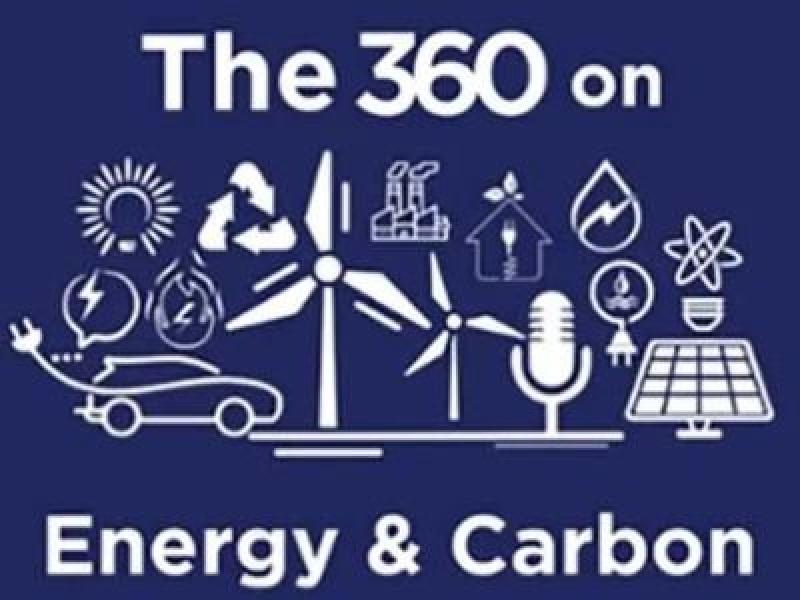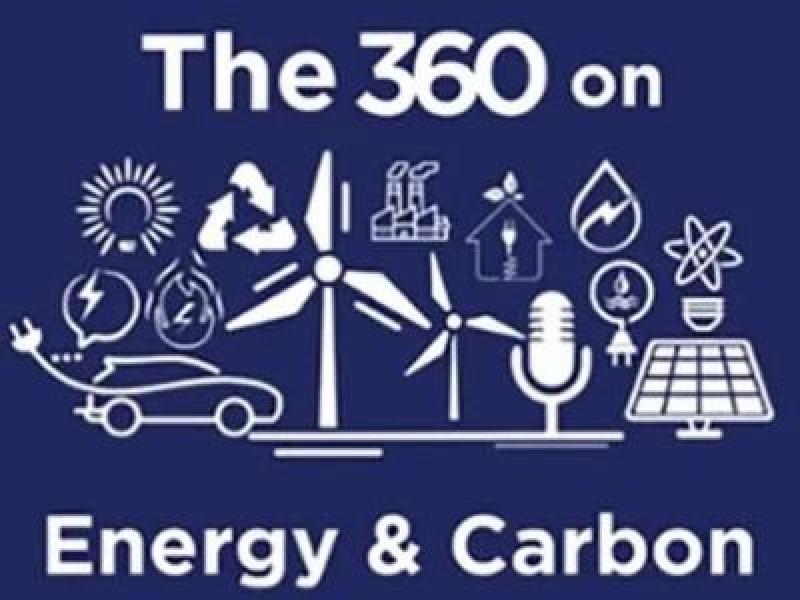The 360 on Energy and Carbon podcast is meant to inform and discuss topics with those who are curious about the energy and carbon industry. Whether you are a business owner, an executive, a young professional, or just a general podcast listener we hope you leave with a better understanding of the industry after each episode. In this podcast, the co-hosts David Arkell and John Pooley speak with Richard Adamson, CEO of Industrial Climate Solutions (ICS).
Adamson leads the development and commercialization of products based on pulse enhanced froth technology for industrial applications. ICS was acquired by Baker Hughes on Feb. 1, 2022. Richard has over 40 years of experience in developing and marketing industrial process equipment and technologies. He also founded Carbon Management Canada, a network of research institutes.
What is CCUS?
CCUS stands for carbon capture, utilization and storage. It is a technology that aims to capture carbon dioxide (CO2) emissions from industrial processes, such as power generation or cement production, and then utilize the captured CO2 for other purposes, such as enhanced oil recovery, or store it in underground geological formations to prevent it from entering the atmosphere and contributing to climate change. CCUS has the potential to play a significant role in reducing greenhouse gas emissions and achieving climate goals by enabling the continued use of fossil fuels while reducing their carbon footprint.
Which industries are most likely to implement carbon capture?
CCUS is beneficial for companies or industries, especially for those that produce large emissions volumes and are motivated to eliminate emissions for marketing reasons or ESG reasons. The highest concentration of CO2 in flue gas is the easiest place to implement carbon capture and storage. For instance, bio-ethanol plants are a no-brainer because the cost of capture is low. The cost of capture is determined by the concentration of CO2; the higher the concentration, the lower the cost of capture. An oil and gas company, a vertically integrated player, is more likely to have its own CCUS project.
Is there a benefit to CCUS?
There is a marketplace already for CO2 buying and selling in the Netherlands. CO2 has an enormous market in Southwestern Ontario that is dependent on CO2 for production purposes. There are some products that have high economic values like carbon nanofibres and exotic materials. However, it takes time to drive and gain market share for these products.
The cost of a CCUS project is in the $50 per ton range for good industrial sites, with another $10 to $15 per ton for storage technology. The pricing was in the range of $80 to $120 in the past, but it has come down over the last three to four years. The minimum viable size for a plant to have its own carbon capture and storage project depends on the location and the regulatory policies. The larger the plant, the better.
Implementing a CCUS system involves years of permitting, regulatory approvals, and public engagement before the rest of the process can begin, meaning the timeline for CCUS implementation is not easy to predict.
The podcast
In the podcast, the hosts also discuss the utilization of CO2 and which industries are more likely to implement it. They explain that the challenge with carbon utilization is converting CO2 into a product that has an economic market. Some high-value products, like carbon nanofibres, have good economics but not massive volumes.
Industries with large emission volumes, such as bioethanol plants, are the easiest places to implement carbon capture and storage. The cost of CCUS projects depends on several variables, such as the concentration of CO2 and the level of pre-treatment. The regulatory policies also play a significant role in determining the location of CCUS.
The hosts also mention some current projects happening in Canada. A vertically integrated player like an oil and gas company is more likely to have its own CCUS project. They also mention the significant market for CO2 buying and selling.
This podcast aims to provide valuable insights into the implementation of CCUS, the challenges faced in carbon utilization, and some of the current projects happening around the world.








